About us
The web page of the congregation of the Evangelical Church of Augsburg Confession in Liptovský Mikuláš
Welcome to the web page!
 Welcome to the web page of the congregation of the Evangelical Church of Augsburg Confession in Liptovský Mikuláš. The congregation belongs to the Liptov-Orava seniorát. The congregation has about 3000 members. Liptovský Mikuláš is situated in the north of Slovakia, between the High and the Low Tatras, in the valley of the river Váh.
Welcome to the web page of the congregation of the Evangelical Church of Augsburg Confession in Liptovský Mikuláš. The congregation belongs to the Liptov-Orava seniorát. The congregation has about 3000 members. Liptovský Mikuláš is situated in the north of Slovakia, between the High and the Low Tatras, in the valley of the river Váh.
History of congregation
The congregation was founded in 16th century and at that time it used the Church of St. Mikuláš. After the publication of the Toleration Act of Jozef II., the evangelicals from Vrbica, Demänová, Ploštín, Iľanovo, Okoličné, Vitálišovce, Veterná Poruba, Smrečany, Žiar, Jalovec, Trstená and Ondrašová asked for permission to build a church, parsonage and school.
Foundation-stone of the church …
Imrich Berzevický
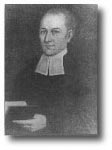 On July 9, 1783, the foundation-stone of the church was laid. On this foundation, the new Vrbica-St. Mikuláš congregation came into existence. After the Toleration Act, Imrich Berzevický from Šariš became the first priest. The work done by our priests could be seen also beyond the Liptov area as they made significant contributions to the ecclesiastical and secular history of the whole of Slovakia:
On July 9, 1783, the foundation-stone of the church was laid. On this foundation, the new Vrbica-St. Mikuláš congregation came into existence. After the Toleration Act, Imrich Berzevický from Šariš became the first priest. The work done by our priests could be seen also beyond the Liptov area as they made significant contributions to the ecclesiastical and secular history of the whole of Slovakia:
Important people …
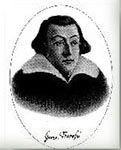
Juraj Tranovský
He was summoned to Liptovský Mikuláš in 1631 and worked as a priest for six years until his death. Advent of 1636 remains memorable because, he completed his voluminous work Kancionál Cithara Sanctorum published in Levoča in 1636. This work was of great importance to the history of our Church.
Michal Miloslav Hodža – He was one of the most influential personalities of the Slovak National Movement. He excelled as a priest, a writer and a linguist. He was our priest in Liptovský Mikuláš from 1837 to 1862. In 1867 he was banished to Český Tešín. He was an active participant in the 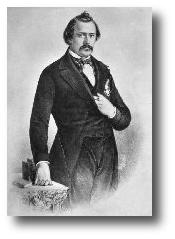 publication of the evangelical hymnary, into which he contributed with 43 hymns. As a member of seniorálneho, a district convention of the Evangelical Church, he acted against the rising Hungarian oppression. Together with Štúr and Hurban, he was a contributor to the literary language. His linguistic works Epigenes Slovenicus and Větín o Slovenčine were remarkable. He took an active part in the Revolution of 1948. In May of that same year, he was the main organizer of the meeting of Štúr’s followers in Liptovský St. Mikuláš, where the document the Demands of the Slovak Nation was appproved. In March of 1849, Hodža was a member of the Slovak delegation which came with the proposal to the king in Olomouc. It proposed a resolution to the problem of Slovak rights. To a great extent, he helped to form the constitution of our Slovak nation. His work made Liptovský Mikuláš one of the centers in the fight for our freedom.
publication of the evangelical hymnary, into which he contributed with 43 hymns. As a member of seniorálneho, a district convention of the Evangelical Church, he acted against the rising Hungarian oppression. Together with Štúr and Hurban, he was a contributor to the literary language. His linguistic works Epigenes Slovenicus and Větín o Slovenčine were remarkable. He took an active part in the Revolution of 1948. In May of that same year, he was the main organizer of the meeting of Štúr’s followers in Liptovský St. Mikuláš, where the document the Demands of the Slovak Nation was appproved. In March of 1849, Hodža was a member of the Slovak delegation which came with the proposal to the king in Olomouc. It proposed a resolution to the problem of Slovak rights. To a great extent, he helped to form the constitution of our Slovak nation. His work made Liptovský Mikuláš one of the centers in the fight for our freedom.
Jur Janoška – In 1877-1878 he studied theology in Rostock and in 1876-1879 in Vienna. He began working in Liptovský Mikuláš in 1895. He was the Bishop of the eastern district and the General Bishop 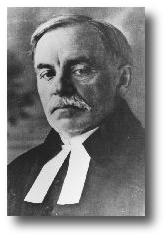 of the Evangelical Church in Slovakia starting in 1922. In 1923, Janoška became the Doctor of Theology Honoris Causa at Husova Czeco-Slovak Evangelical Theological Faculty in Prague. He took an active role in the Slovak National Movement before 1918. He signed the Declaration in Martin and for a short time was a member of the National Assembly. He greatly contributed to the development of the ecclesiastical printing. In 1887 Janoška established and until 1921 edited Cirkevné listy (Ecclesiastical Letters). In 1901, he began working as an editor, first with Časopis pre ev.bohoslovie (the Magazine for Evangelical Divinity). Then from 1905 to 1911 with Ev. kazeteľ (the Evangelical Preacher), from 1899 to 1921 Tranovský ev. kalendár (Tranovský Evangelical Calendar). In 1898, he established and led the editions of association Tranoscius until 1929. After 1918, Janoška helped the development of Matica Slovenská, and from 1922 to 1930 he presided over it. He was the chairman of Hurbanova Evangelical Literary Group and one of the deputy chairmen of the World Alliance for the International Peace Cooperation through the Church.
of the Evangelical Church in Slovakia starting in 1922. In 1923, Janoška became the Doctor of Theology Honoris Causa at Husova Czeco-Slovak Evangelical Theological Faculty in Prague. He took an active role in the Slovak National Movement before 1918. He signed the Declaration in Martin and for a short time was a member of the National Assembly. He greatly contributed to the development of the ecclesiastical printing. In 1887 Janoška established and until 1921 edited Cirkevné listy (Ecclesiastical Letters). In 1901, he began working as an editor, first with Časopis pre ev.bohoslovie (the Magazine for Evangelical Divinity). Then from 1905 to 1911 with Ev. kazeteľ (the Evangelical Preacher), from 1899 to 1921 Tranovský ev. kalendár (Tranovský Evangelical Calendar). In 1898, he established and led the editions of association Tranoscius until 1929. After 1918, Janoška helped the development of Matica Slovenská, and from 1922 to 1930 he presided over it. He was the chairman of Hurbanova Evangelical Literary Group and one of the deputy chairmen of the World Alliance for the International Peace Cooperation through the Church.
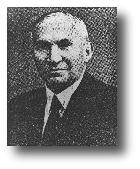
Michal Madera – Starting in 1930, he was our priest. He was the organizer and the patron of diocanate, the caretaker of the orphanage, and the founder of the evangelical almshouse.
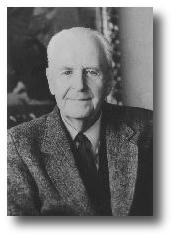
Vladimír Kuna – He was the caretaker of the orphanage, where he saved 26 Jewish children (during the Second World War). He was given an award by the state Israel YAH VASHEM.
 Vladimír Pavel Čobrda – He was the General Bishop, but in 1953 the state forced him to resign from the priesthood and bishop’s post. Čobrda then left for retirement to Smrečany.
Vladimír Pavel Čobrda – He was the General Bishop, but in 1953 the state forced him to resign from the priesthood and bishop’s post. Čobrda then left for retirement to Smrečany.

